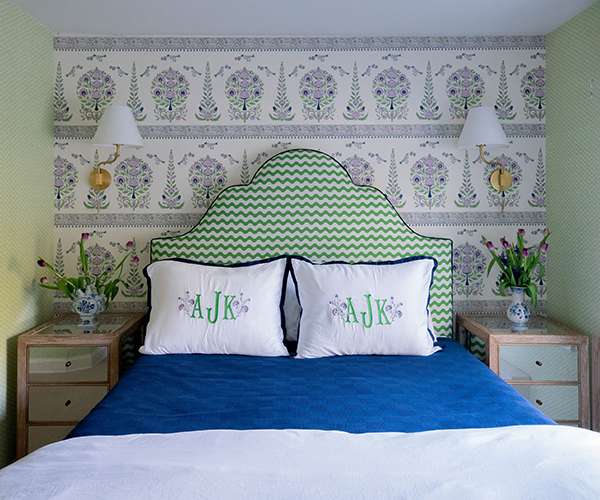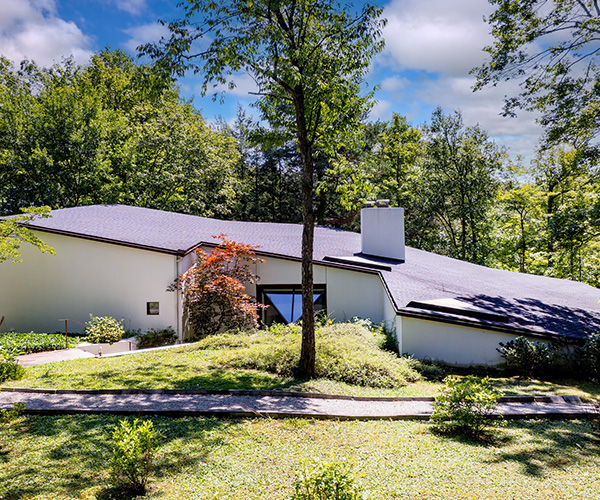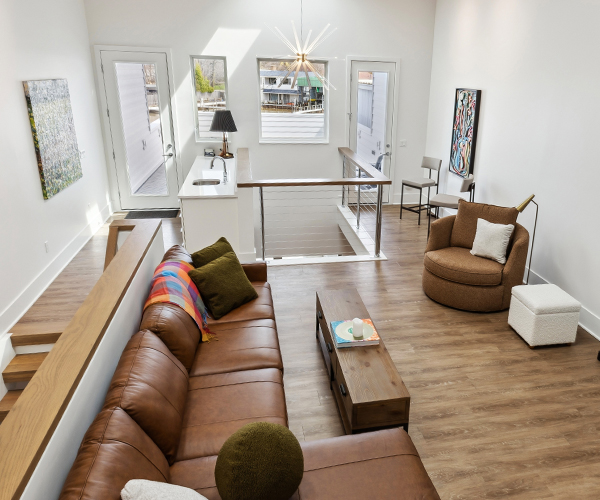Last summer, John Ludwick helped change the lives of a family that "moved up" in the real estate market. They moved out of their outdated colonial in an older Cleveland suburb and moved into a four-bedroom "dream home" in progressive Solon.
In "moving up" to a 2,700-square-foot house in a much nicer neighborhood, the couple gained amenities they'd never had — including an attached garage, an additional bathroom, a family room with a cozy fireplace and a finished recreation room for their two youngsters.
"I'm still in touch with them and they love their home, the neighborhood, and the children love their school," says Ludwick, operating principal at Keller Williams Realty's Greater Cleveland office on Chagrin Boulevard. "It's been a year and they're very pleased with their buying decision."
Like many prudent homebuyers, this couple weighed their options and pondered their preferences before moving. Topping their list were such priorities as their desired school system, various neighborhood amenities and space requirements they needed in their new home.
"Like them, many people decide to move up because they've outgrown their house in terms of its economic value," Ludwick says.
When you do the math, says Ludwick, moving up usually makes more "cents." For example, he likens the real estate market to a layered pyramid in which there are more $100,000 houses on the bottom of the pyramid, and moving up the scale in $25,000 increments, there are fewer buyers and fewer houses on each level.
"Suppose your existing home is valued at $150,000 and it's located in a neighborhood where it can only appreciate at about 3 percent per year. That amounts to just $5,000 a year," he says. "Compare that to a $400,000 house in a community that's more in demand, and homes in that neighborhood appreciate at 5 percent each year. That can amount to about $20,000 a year."
Consequently, you can reap a greater profit over time by moving up.
"About seven years ago, one of my best friends lived in a house valued at $175,000 and he moved up to a home worth about $350,000," Ludwick says. "Today, this home is valued at $450,000 but his former house is worth only about $185,000."
Math and market trends aside, Jane-ann Bell says the "right time" to move up is when you can financially afford the house of your dreams. And if your move-up will be prompted by preferences for your child's education, you should start saving early.
"A lot of people start planning for a move-up even before their child is born," says Bell, a broker/manager for RE/MAX Traditions in Chagrin Falls and Aurora. "In the spring of the year when the child will start school, that's when parents should start looking for a home in their desired community."
Of course, most people decide to move up because they've out- grown their home in other ways.
"You know it's time to move up when you have run out of space and you can't even see your floor anymore!" Bell laughs.
Clarifying the meaning of "moving up," Bell says that doesn't always translate to buying a bigger house.
"Most people who are moving up are looking for more space and those extra quality touches to pamper themselves, like bathrooms with whirlpool tubs and kitchens with granite countertops," she says. "Other people are downsizing, but they want a home with better quality, more bells and whistles, and maintenance-free living."
So, downsizing can actually be classified as moving up, based on location and the cost of new construction per square foot.
"Some new construction costs a lot more per square foot than the prices of many beautiful older homes, even Tudor mansions," says Bell.
That's why a homebuyer's most im-portant consideration should be whether to invest in new construction or resale.
"The cost of new construction in the suburbs is increasing and it's very difficult to find a new single-family home priced under $400,000," says Ludwick. "Even condominiums are pricing around $300,000 in suburban areas."
Considering the expense involved in any move, why invest the energy and spend the money to move when you can upgrade and enlarge the space in your existing home?
Depending on the homeowner's needs, renovating as a short-term solution can often be a good choice, says Bell. But when homeowners weigh the pros and cons of upgrading versus moving up, they should contemplate their current and long-term plans.
"If they determine that their renovations are going to price their house out of the neighborhood, that's when they should start looking to move up to a larger home," she says. "Other homeowners love where they live so much that it doesn't matter to them how much money they put into it, because they plan to live there for years."
Ludwick agrees that sometimes it just doesn't make economic sense to upgrade kitchens and bathrooms, or add other types of rooms. "In some communities, it would be unadvisable to make those kinds of improvements because the value of other homes in your neighborhood cannot carry your investment," he says.
Depending on the neighborhood, though, upgrading can be a sensible choice, even at the time of purchase. "Say you buy a resale in Pepper Pike in the $300,000 range, but you need to add a family room or upgrade a kitchen or bathroom," he says. "Because of the nature of those communities, spending up to $75,000 to upgrade that property is not unwise because the community will carry that kind of investment over time."
Another concern many homeowners have today is that, if they're going to move up, they want a home in which they don't have to "move up" the stairs. "When homeowners start to feel weak in the knees, that's usually the time when they start looking for homes with first-floor masters," Bell says.
Whether it's for health reasons or a matter of convenience, many more homebuyers are investing in homes that offer one-floor living. "Particularly with the aging American population, we're seeing more and more people demanding first-floor masters," says Bell.
Some people are surprised to discover that construction costs for homes with first-floor masters are much higher, says Bell. And yet, this type of home can pay off in many ways.
"As you get older, you don't have to start looking for another house that has one-floor living, because you've already got a home that doesn't have steps," she says.
Whatever your housing choice, real estate agents concur that springtime is the busiest time in real estate. However, it's a good idea to start shopping for a home in late fall or early winter, says Bell, because this is when you can likely seal a deal for a lower price.
"Many sellers are desperate to cut deals at that time, which they wouldn't be willing to make in the spring when there are two buyers for every house," she says.
Ludwick explains that most real estate activity begins from February to May because homebuyers become interested in housing in January, so sellers start listing their homes at that time.
"There's a summer softening when people start vacationing and enjoying the outdoors. The market is still good at this time, but not quite as brisk," he says. "Things start picking up again from September through Thanksgiving, and then it falls off in November and December."
Regardless of the season, says Ludwick, the real estate market is driven by supply and demand. When the supply is great and demand is low, buyers can make sweeter deals. Conversely, when the supply is low, sellers profit.
"My best advice is not to wait too long to start planning your move-up," says Ludwick.
In making your plan, real estate agents encourage homebuyers to scrutinize the bottom line before setting foot in the market. Determine how much you can realistically recoup from your existing home sale, and how much you'll have for a down payment on your next home. You can qualify for a better loan if you have a higher down payment, and your monthly mortgage payments will be lower.
On that note, homeowners who get pre-qualified have an advantage when they find the home of their dreams and want to make an offer, says Bell.
Going beyond the home purchase, factor in your other debts and expenses, savings plans and retirement goals. Lenders advise that your mortgage should be about 25 percent of your gross monthly income. So keep your eye on that figure, view only the homes you can actually afford, and don't become swayed by what you see if you simply cannot afford it.
"In my experience, people who make a plan and implement it are pleased with their choices overall," Ludwick says. "If you have a plan and you implement it early, you make much better decisions over the long run — and you get what you want."



